Top MailChimp Alternatives in 2026

MailChimp is a popular marketing platform known primarily for email marketing. It allows users to design emails, manage contact lists, automate marketing messages, and analyze campaign performance. Many businesses, especially small ones or those starting out, use MailChimp because of its recognized name and range of tools, which extend beyond email to include landing pages and social media posting.
The platform provides a visual editor and templates to help create email campaigns. It also offers segmentation options to target specific audience groups and automation features for sending messages based on user behavior or specific dates.
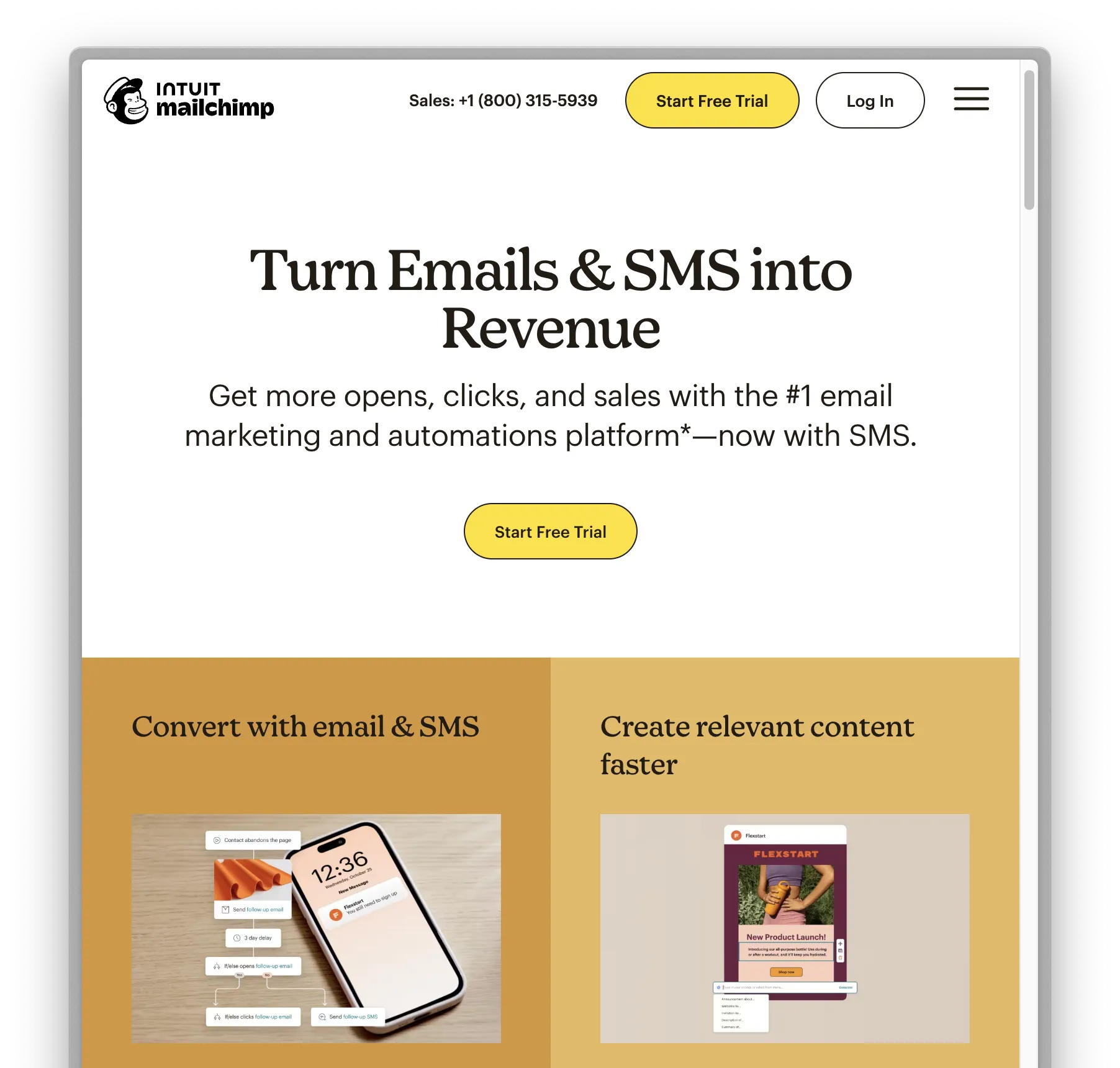
MailChimp offers a free plan, which attracts many users. Paid plans unlock more features and increase limits on contacts and email sends. Changes in its pricing structure and feature availability across tiers over time have prompted some users to look for other solutions that might better fit their budget or specific marketing needs.
✅ Pros:
- Well-known platform with many features
- User-friendly interface, particularly for beginners
- Offers a free starting plan
❌ Cons:
- Pricing can increase significantly with list growth or advanced feature use
- Some find the interface less intuitive as more features were added
- Focus has broadened, potentially making it complex for users needing only email marketing
Top MailChimp Alternatives in 2025
While MailChimp is a common choice, its pricing model or feature set may not suit everyone. Businesses grow, needs change, and different platforms offer strengths in specific areas like automation, e-commerce integration, or affordability. Here are several strong alternatives to MailChimp available in 2025.
1. Brevo (formerly Sendinblue)
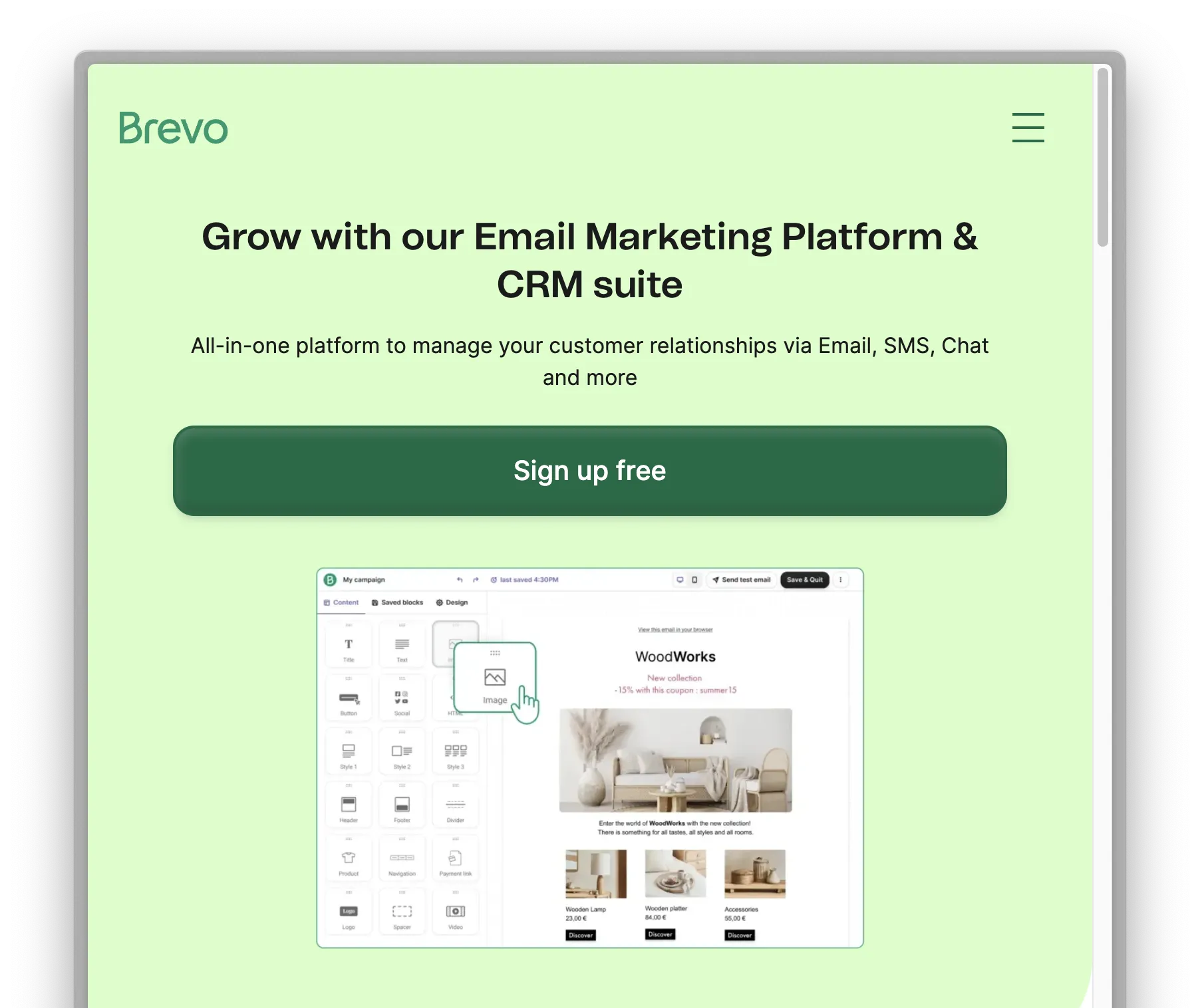
Brevo positions itself as an all-in-one sales and marketing platform. It started with email marketing but now includes SMS marketing, chat, CRM, landing pages, and transactional emails. This makes it a versatile option for businesses wanting to manage multiple communication channels from one place.
Compared to MailChimp, Brevo’s pricing is often based on the number of emails sent rather than the number of contacts stored, which can be more cost-effective for users with large lists but moderate sending frequency. Brevo also provides robust automation features even on lower-tier plans. Its transactional email service (for things like password resets or order confirmations) is a key part of its offering.
Main Benefits of Brevo:
- Pricing based on email volume, potentially offering savings
- Includes multiple marketing channels (SMS, chat)
- Strong transactional email capabilities
2. MailerLite
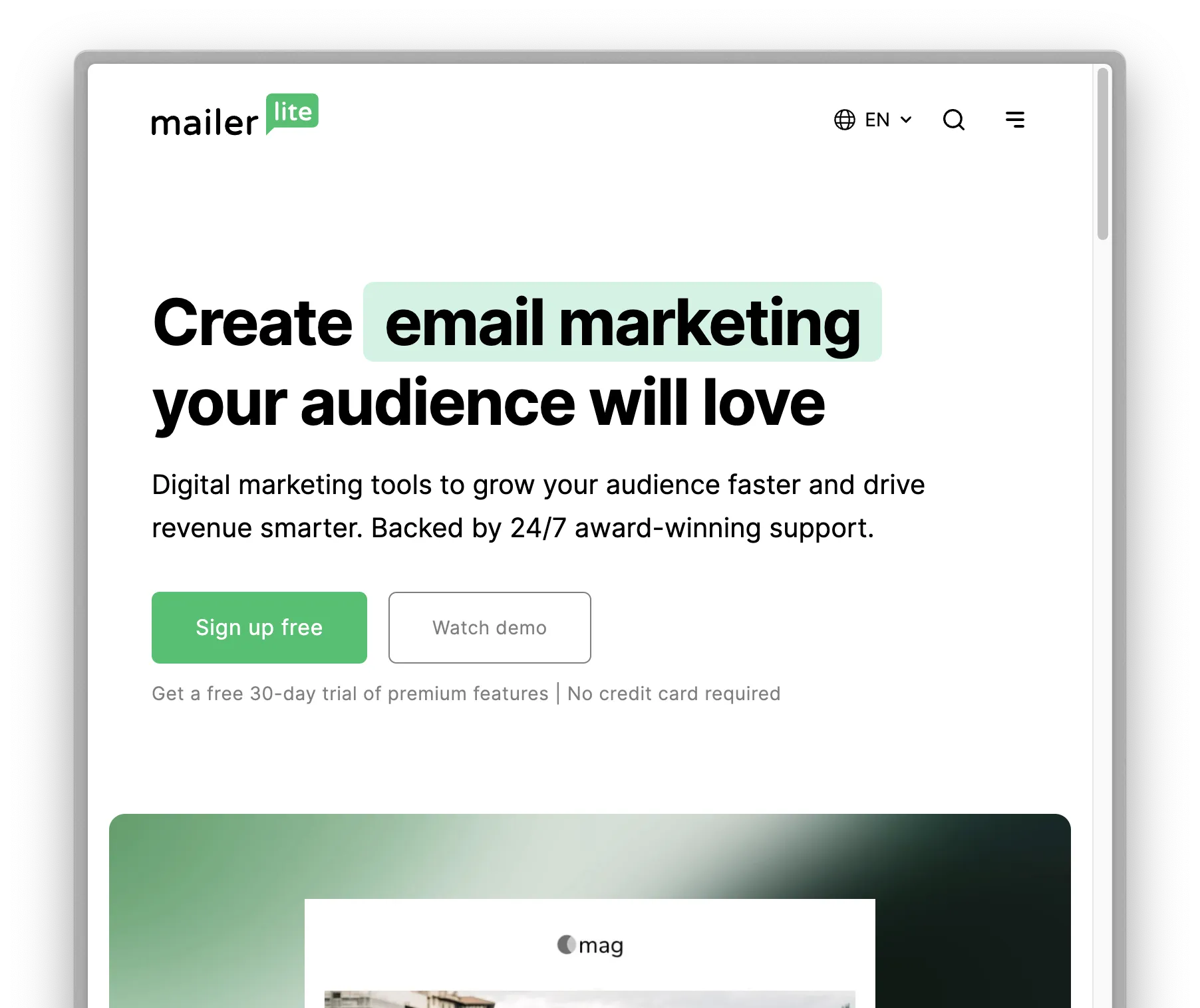
MailerLite is known for its simplicity and user-friendly interface, making it a popular choice for beginners, freelancers, and small businesses. It offers core email marketing features like a drag-and-drop editor, automation, segmentation, and landing pages.
MailerLite generally offers more generous features on its free and lower-cost plans compared to MailChimp. For example, automation features are often accessible earlier. Its interface is clean and focused, which many users appreciate. While it might lack some of the very advanced features found in higher-end platforms, it covers the necessities for effective email marketing well.
Main Benefits of MailerLite:
- Clean, easy-to-use interface
- Affordable pricing with good feature access on lower tiers
- Strong focus on core email marketing functionalities
3. ActiveCampaign
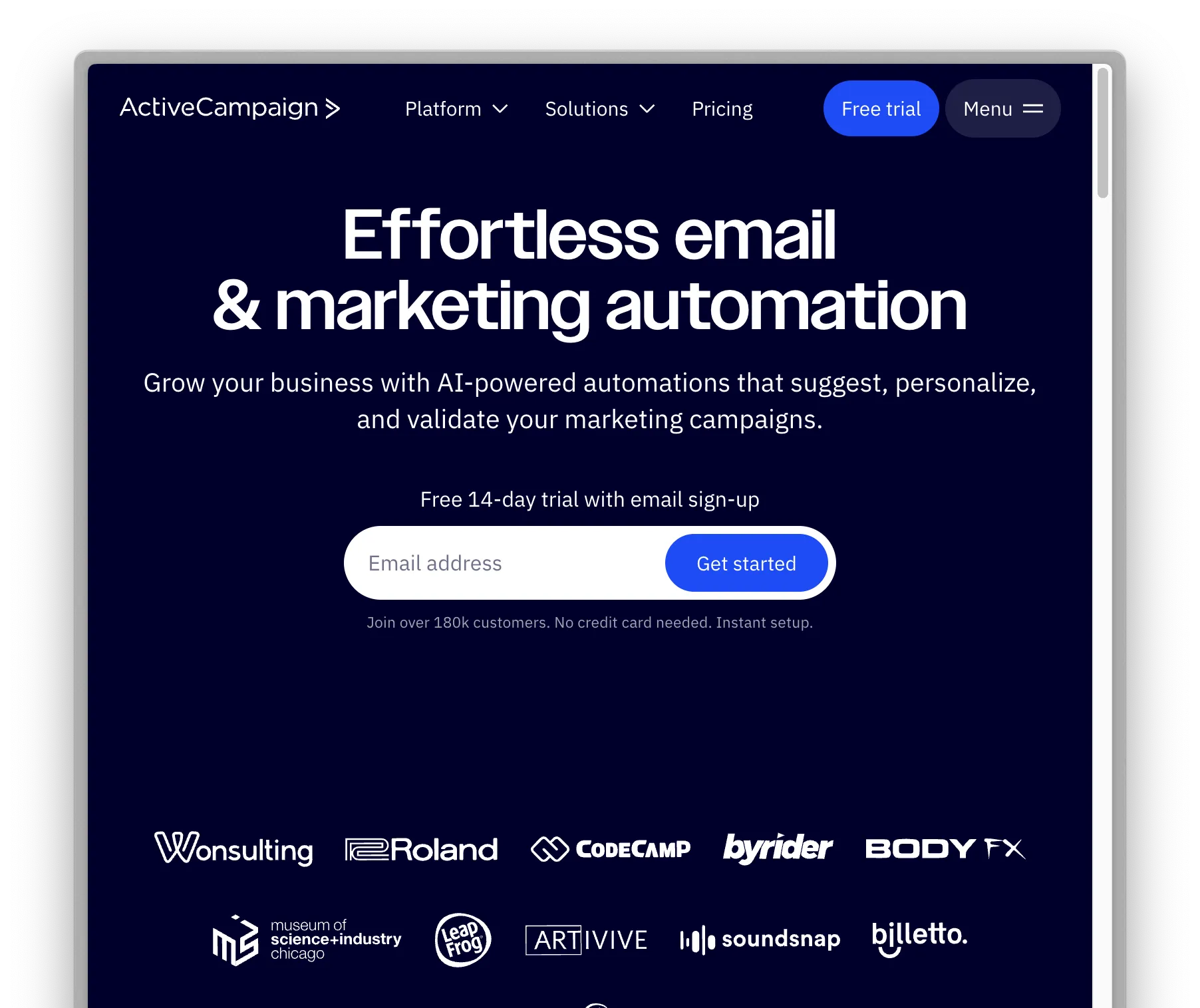
ActiveCampaign is a powerful platform focusing on marketing automation and CRM. It’s designed for businesses that need sophisticated automation workflows, detailed segmentation, and lead scoring. If MailChimp’s automation feels limiting, ActiveCampaign offers a significant step up.
You can create complex automations based on user behavior, engagement, location, and more. The integrated CRM helps manage customer relationships alongside marketing efforts. While its interface might take more time to learn than MailChimp’s, its capabilities in automation and personalization are extensive. Pricing reflects its advanced feature set and is typically based on contact count and feature tier.
Main Benefits of ActiveCampaign:
- Advanced marketing automation and segmentation
- Built-in CRM features
- Good for businesses needing sophisticated customer journeys
4. Kit (formerly ConvertKit)
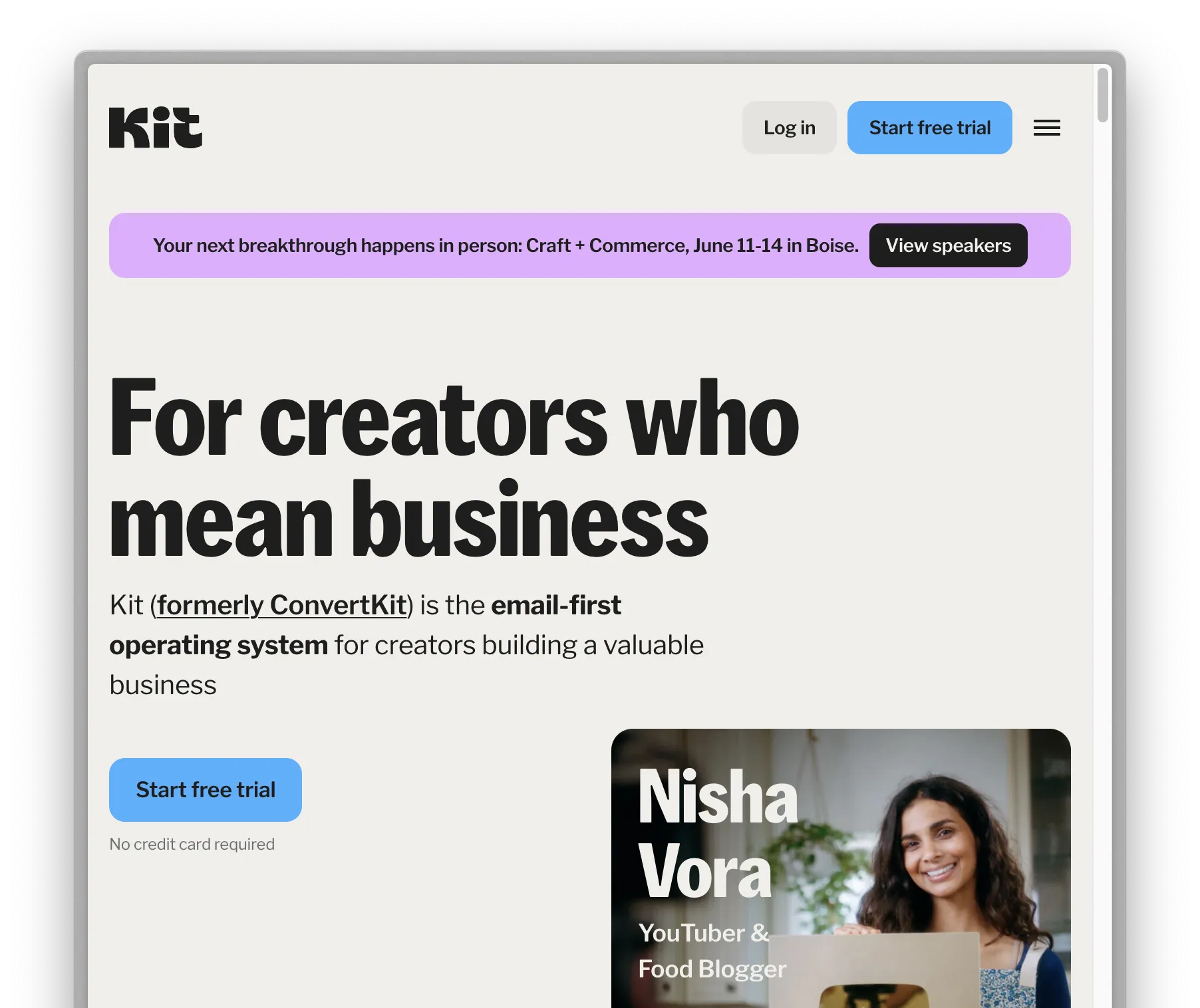
Kit is built specifically for creators like bloggers, course creators, artists, and musicians. Its features are designed to help creators grow their audience and sell digital products or services. It emphasizes simple email designs, powerful tagging and segmentation, and easy-to-build automation rules.
Compared to MailChimp, Kit’s focus is narrower but deeper within the creator niche. It offers tools like visual automation builders, customizable forms and landing pages tailored for lead generation, and integrations with platforms creators commonly use. Its pricing is based on the number of subscribers.
Main Benefits of Kit:
- Tailored features for online creators
- Strong tagging and segmentation capabilities
- Focus on audience building and selling digital products
5. GetResponse
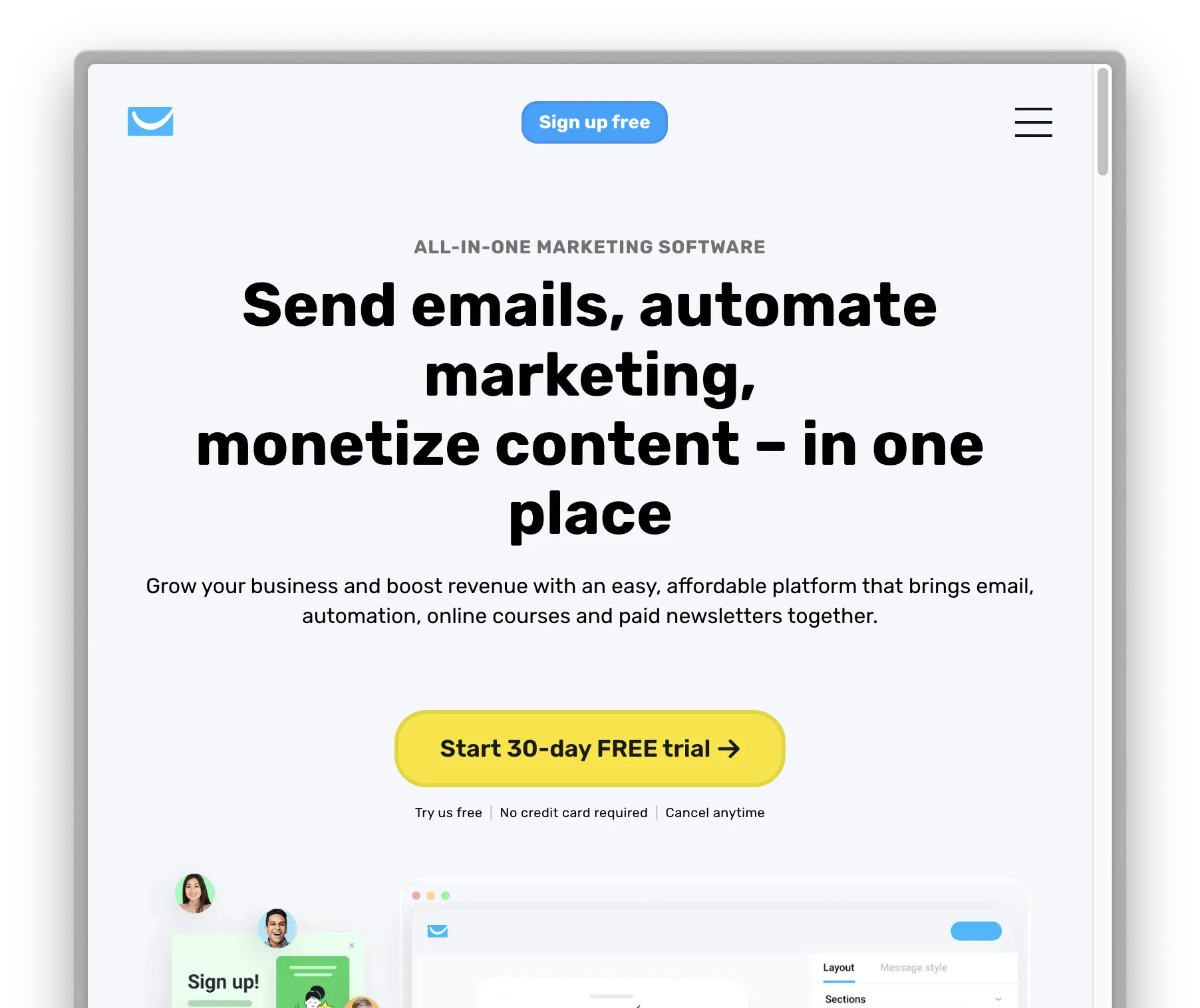
GetResponse is another all-in-one marketing platform that competes closely with MailChimp. It offers email marketing, landing pages, automation, and notably, built-in webinar hosting capabilities. This makes it attractive for businesses that use webinars as part of their marketing strategy.
Its automation features are quite capable, allowing for complex workflow creation. GetResponse also provides conversion funnel features designed to guide users through specific sales processes. The platform offers various pricing tiers based on list size and features, positioning itself as a comprehensive solution for online marketing.
Main Benefits of GetResponse:
- Includes webinar hosting features
- Comprehensive suite of marketing tools (funnels, automation)
- Scalable plans for growing businesses
6. Constant Contact
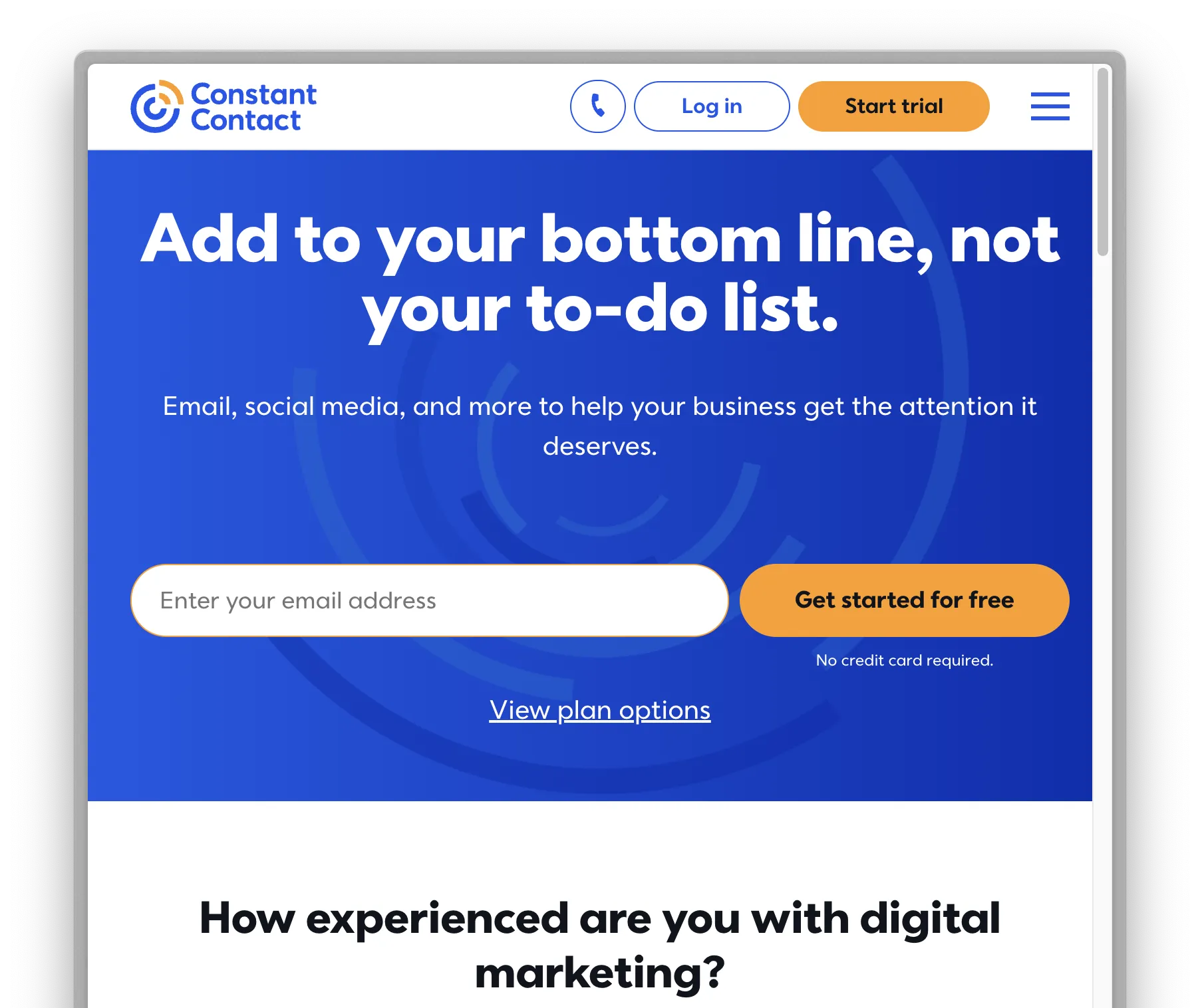
Constant Contact is one of the older players in the email marketing space, known for its ease of use and customer support. It primarily targets small businesses and nonprofits. The platform offers email marketing, templates, list management, social media marketing tools, and event marketing features.
Its interface is generally straightforward, aiming to help users quickly create and send professional-looking emails. While it might not have the depth of automation found in ActiveCampaign, it provides solid core features suitable for many small organizations. Constant Contact often receives positive mentions for its customer service accessibility.
Main Benefits of Constant Contact:
- Easy-to-use interface, good for beginners
- Strong customer support reputation
- Includes tools for social media and event marketing
7. HubSpot Marketing Hub

HubSpot offers a suite of tools covering marketing, sales, and customer service, with its Marketing Hub handling email marketing. The biggest advantage of HubSpot is its integration with its powerful free CRM. This provides a unified view of customer interactions across marketing and sales.
The email marketing tools within Marketing Hub include personalization, automation, A/B testing, and analytics. While MailChimp has added CRM features, HubSpot’s CRM is more central and robust. HubSpot can be more expensive, especially as you scale or add more “Hubs,” but its free tools provide a good starting point, and the integration benefits are significant for businesses wanting an all-in-one system.
Main Benefits of HubSpot Marketing Hub:
- Tight integration with a powerful free CRM
- Comprehensive suite of marketing and sales tools
- Scalable platform that can grow with a business
8. Klaviyo
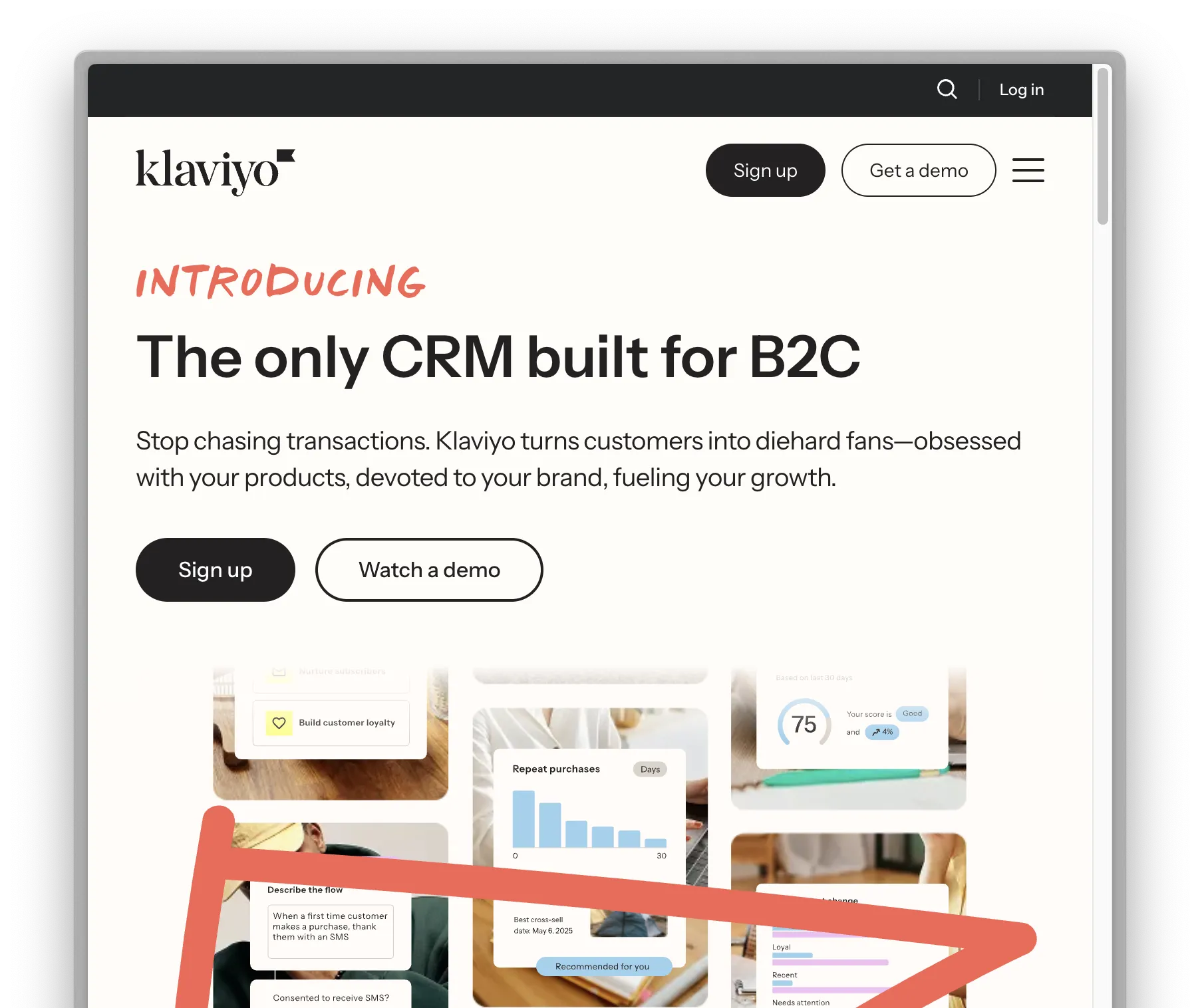
Klaviyo focuses heavily on e-commerce marketing automation. It integrates deeply with e-commerce platforms like Shopify, BigCommerce, and Magento, allowing businesses to use rich customer data (like purchase history and Browse behavior) for highly targeted email and SMS campaigns.
If you run an online store, Klaviyo’s specific features for abandoned cart recovery, product recommendations, and post-purchase follow-ups are very effective. Compared to MailChimp’s e-commerce features, Klaviyo generally offers more depth and flexibility in this area. Its pricing is based on contact count and email/SMS volume.
Main Benefits of Klaviyo:
- Deep integrations with major e-commerce platforms
- Advanced segmentation based on purchase and Browse data
- Specialized features for online retail marketing
Conclusion
Choosing the right email marketing tool depends on your business goals, budget, and ease with technology. MailChimp is a solid option, but alternatives might fit your needs better. Consider ActiveCampaign for advanced automation, MailerLite for budget-friendly pricing, Kit for creator-focused tools, HubSpot for built-in CRM, Klaviyo for e-commerce needs, or Brevo and GetResponse for all-in-one solutions. Review your priorities, including features, list size, sending volume, and cost, to pick the best platform for your business.